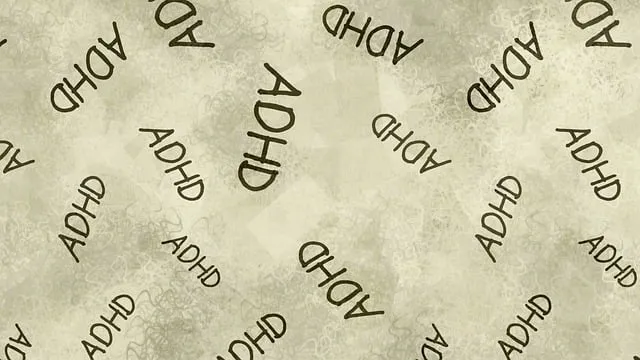Coping skills are essential tools for managing mental health challenges, and Kaiser Permanente mental health Lafayette offers evidence-based practices tailored to diverse cultural needs. They empower individuals with stress management techniques, conflict resolution skills, and self-care routines through holistic approaches like mindfulness meditation and cognitive-behavioral therapy (CBT). By prioritizing early intervention and building support networks, KP Lafayette fosters resilience and improves well-being, transforming lives within the community.
Coping skills are essential tools in navigating life’s challenges and play a pivotal role in one’s mental health journey. This article explores the significance of these skills, highlighting the efforts of Kaiser Permanente Lafayette in fostering resilient mindsets within their community. We provide an actionable guide for developing effective coping strategies and share inspiring success stories from the Kaiser Permanente network, showcasing the positive impact on well-being. Discover how simple yet powerful techniques can empower individuals to thrive, even amidst stress and adversity, with the support of dedicated healthcare providers like Kaiser Permanente Lafayette.
- Understanding Coping Skills and Their Significance in Mental Health Journey
- The Role of Kaiser Permanente Lafayette in Promoting Resilient Mindsets
- Strategies for Effective Coping Skills Development: A Step-by-Step Guide
- Real-Life Applications: Success Stories from the Kaiser Permanente Community
Understanding Coping Skills and Their Significance in Mental Health Journey

Coping skills are essential tools for navigating life’s challenges and play a pivotal role in one’s mental health journey. Understanding and developing effective coping strategies is crucial, especially when addressing mental health concerns at Kaiser Permanente mental health Lafayette or similar healthcare settings. These skills enable individuals to manage stress, regulate emotions, and cope with difficult situations in healthy ways.
In the context of Mental Health Awareness, fostering resilience through coping skills can empower individuals to take charge of their well-being. Moreover, Cultural Sensitivity in Mental Healthcare Practice is essential, ensuring that coping strategies are tailored to meet diverse cultural needs. Public Awareness Campaigns Development can also benefit from highlighting coping mechanisms, encouraging open conversations about mental health and offering practical tools for personal growth and recovery.
The Role of Kaiser Permanente Lafayette in Promoting Resilient Mindsets

Kaiser Permanente Lafayette plays a pivotal role in promoting resilient mindsets and enhancing mental well-being within its community. Through comprehensive programs and services, the healthcare provider offers a safe space for individuals to navigate life’s challenges. Their dedicated team of mental health professionals utilizes evidence-based practices tailored to diverse needs, empowering patients with effective coping skills. By focusing on both physical and mental health integration, Kaiser Permanente Lafayette fosters an environment that encourages proactive stress management and emotional healing processes.
This organization recognizes the importance of early intervention and prevention in mitigating mental health risks. They provide accessible resources and education, enabling individuals to recognize warning signs and seek support promptly. The tailored approach ensures that each patient receives personalized care, fostering a sense of empowerment and resilience in managing their mental well-being, especially during stressful times.
Strategies for Effective Coping Skills Development: A Step-by-Step Guide

Developing effective coping skills is a transformative process that empowers individuals to navigate life’s challenges with resilience and well-being, especially when supported by resources like Kaiser Permanente mental health Lafayette. Here’s a step-by-step guide to help you embark on this journey:
1. Identify Stressors and Emotions: The first step involves recognizing the triggers and emotions associated with stressful situations. Keep a journal to track your feelings, identifying patterns that lead to overwhelming stress. Understanding your emotional responses is crucial for developing tailored coping strategies.
2. Practice Self-Care: Prioritize self-care activities that nourish your mental wellness. This includes adequate sleep, regular exercise, a balanced diet, and engaging in hobbies you enjoy. These foundational practices enhance your overall resilience and make it easier to manage stress effectively.
3. Explore Relaxation Techniques: Incorporate relaxation techniques such as deep breathing exercises, meditation, or yoga into your daily routine. These practices have been shown to reduce symptoms of depression and anxiety, promoting a sense of calm and clarity.
4. Develop Conflict Resolution Skills: Learning effective conflict resolution techniques is vital for managing interpersonal stressors. This involves active listening, expressing your needs assertively, and finding win-win solutions. Such skills foster healthier relationships and reduce the impact of conflicts on your mental health.
5. Seek Support and Social Connection: Building a strong support network is essential for coping with life’s challenges. Reach out to friends, family, or consider joining community groups where you can share experiences and gain different perspectives. Remember, it’s okay to ask for help when needed.
Real-Life Applications: Success Stories from the Kaiser Permanente Community

In real-world settings, particularly within the Kaiser Permanente community in Lafayette, coping skills development has proven to be a transformative force. Many members have attested to the positive impact of these strategies on their mental well-being. For instance, individuals struggling with anxiety and depression have reported significant reductions in symptoms through evidence-based practices such as mindfulness meditation. This ancient technique, now widely recognized by mental health professionals at Kaiser Permanente, empowers individuals to stay grounded in the present moment, thereby mitigating the effects of stressful situations.
The success stories from Lafayette reflect a broader trend within Kaiser Permanente, where a holistic approach to mental health care incorporates various coping mechanisms. Beyond mindfulness meditation, many patients have found solace in mood management techniques tailored to their unique needs. This includes cognitive-behavioral therapy (CBT), which helps individuals challenge and change negative thought patterns and behaviors. By fostering resilience and emotional regulation skills, these interventions enable community members to navigate life’s challenges more effectively, ultimately enhancing their overall quality of life.
Coping skills development is a powerful tool for navigating life’s challenges, especially in promoting better mental health. As discussed in this article, Kaiser Permanente Lafayette plays a significant role in empowering individuals with resilient mindsets and effective coping strategies. By understanding the importance of these skills and utilizing resources like those offered by Kaiser Permanente, folks can enhance their ability to cope with stress, anxiety, and other mental health concerns. Through practical steps and real-life success stories from within the Kaiser Permanente community, it’s evident that investing in coping skills development is a game-changer for mental well-being, particularly when supported by dedicated organizations like Kaiser Permanente Lafayette.






